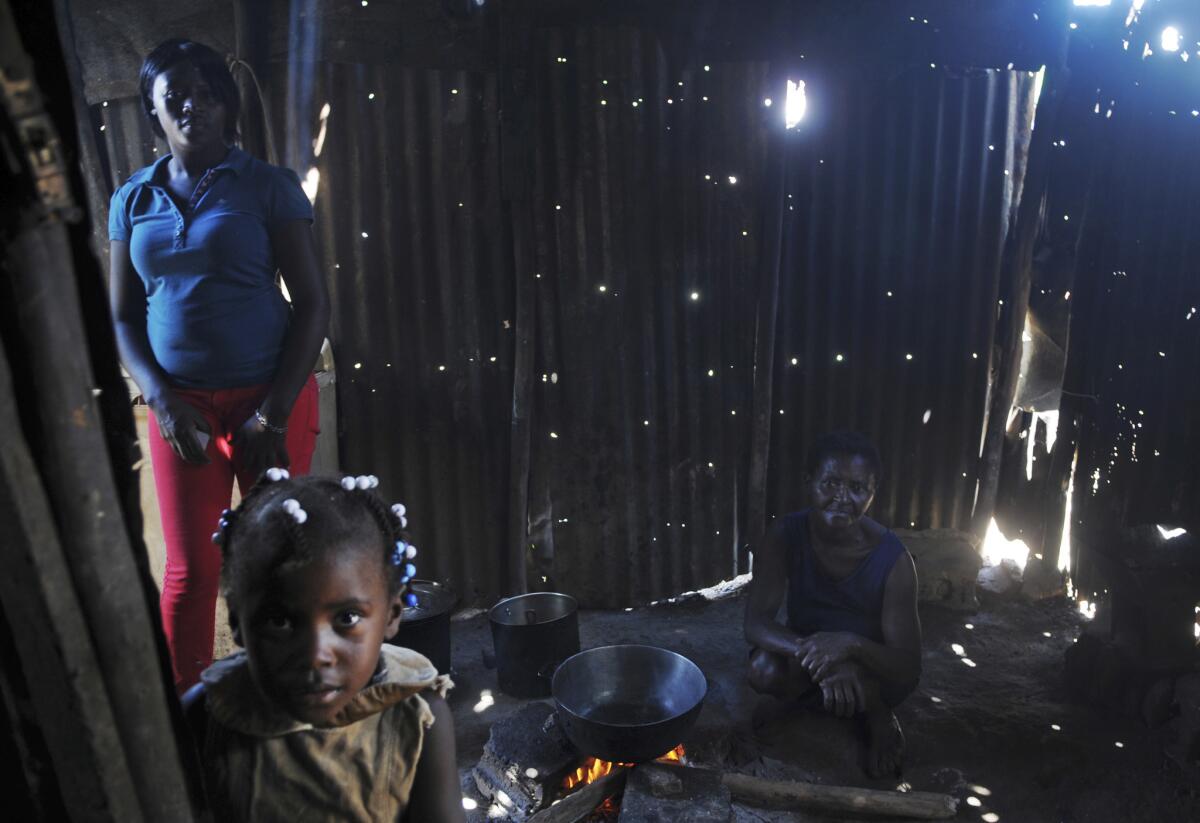Stateless in the Dominican Republic

- Share via
A recent decision by the Constitutional Court in the Dominican Republic effectively clears the way for officials to retroactively strip the citizenship of tens of thousands of Dominicans of Haitian descent. The ruling — that children born to Haitian immigrants are essentially foreigners in the country of their birth — is arbitrary and unjust and could potentially create one of the largest groups of stateless people in recent years.
Until recently, “birthright citizenship” was an established part of Dominican law, meaning that anyone born in the country was automatically eligible to be a citizen. That included children born to Haitian migrants who had come into the country illegally or as guest laborers to work in the Dominican sugar plantations, or to clean houses or to join construction crews. That law changed in 2010, when the country adopted a new constitution that limited citizenship to those children born to legal immigrants or those who had at least one parent of Dominican ancestry. Whether you agree with that change or not, there’s little question that sovereign nations have the right to decide who is eligible for citizenship and under what conditions.
But what is entirely unacceptable is the court’s decision to apply the new law ex post facto, to individuals like plaintiff Juliana Deguis, a 29-year-old woman born in the Dominican Republic to Haitian parents long before the new constitution was adopted. As a result of the decision, Deguis is now stateless; she’s not a Dominican citizen or a Haitian citizen or a citizen of any other country. The Constitutional Court has ordered the government to review its birth records going back to 1929 to identify all those who no longer qualify for citizenship, including those to whom it has already been granted.
Theoretically, some of the victims of this unjust new rule might qualify for Haitian citizenship. But many have never set foot in Haiti and don’t even speak French or Haitian Creole. Some might find that the records needed to prove their eligibility are missing or were destroyed in the 2010 earthquake.
The Constitutional Court’s decision — which follows many years of resentment and mistreatment of Haitians, who have come to the Dominican Republic by the thousands to do the country’s hardest and lowest-paid work — has outraged human rights groups and raised concern in the United Nations. It has needlessly and tragically created a humanitarian crisis where none existed. There is still time, however, for the international community to urge Dominican officials to exercise restraint as they review thousands of birth records. At the very least, they should provide legal status to those they strip of citizenship.
More to Read
A cure for the common opinion
Get thought-provoking perspectives with our weekly newsletter.
You may occasionally receive promotional content from the Los Angeles Times.










